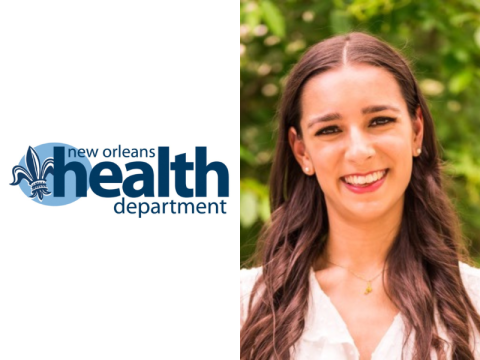Advancing Maternal and Child Health Initiatives with The New Orleans Health Department
Over the fall semester, I was privileged to continue working as a Reproductive Justice Intern with the New Orleans Health Department (NOHD) while studying abroad in Denmark through the Danish Institute for Study Abroad program. During my time abroad, I deepened my understanding of baby boxes, a concept I initially learned at NOHD. The baby box is a sturdy cardboard box with a mattress where babies can sleep. The box contains essential newborn and postpartum supplies. Finland distributed baby boxes to expecting mothers in the 1930s in response to the country’s high infant mortality rate. The objective was to provide all infants in Finland an equal start in life.
I had the opportunity to speak with a general practitioner at The Finnish Institute for Health and Welfare while on an enriching class study tour in Finland. I learned from him that the baby box is likely a contributing factor to the improvement of maternal and child health in Finland, in conjunction with Finland’s exceptional maternity care. He was aware of families who utilized the baby box as a temporary bed for their baby until they were able to find a crib, thus reducing maternal anxiety and stress. I found this information very fascinating and insightful as it connects with the work I have done for the New Orleans Health Department over the past year. I have worked on promoting maternal and child health by completing tasks to support the U.S. Health and Human Services (HHS) Newborn Supply Kit program. The HHS Newborn Supply Kit program is inspired by Finland’s baby box program. In Finland, expecting mothers receive a baby box from the Finnish government prior to giving birth. The baby box has assisted in increasing safe sleep practices and reducing health disparities, infant mortality, and financial stress. In an effort to improve maternal and child health in America, HHS adopted Finland’s baby box program and adjusted the contents of the Kit, the biggest change being the removal of the box and mattress due to U.S. federal safety concerns. The newborn and postpartum supplies along with educational pamphlets are instead being provided to families in a bag.
The first pilot phase of the Newborn Supply Kit program was in 2023. The program was tested in Arkansas, Louisiana, and New Mexico– three states experiencing the highest maternal mortality rates in the country. Some of the early findings of the pilot include reduced anxiety and stress (two-thirds of survey respondents), high satisfaction with the Kit (97% of recipients were satisfied or extremely satisfied with the Kit), and increased trust in government and resource connections.
This semester, my supervisor Meshawn A Siddiq, Deputy Director of NOHD, tasked me with developing a one-pager to be presented to Louisiana Representative, Julia Letlow to garner support for the continuation of the program. My one-pager described an overview of the Newborn Supply Kit program, the contents of the Kit, early findings of the Kit, and the distribution plans for 2024. I used the information I gained from my study tour in Finland to assist me in writing the background section of the one-pager. I attended an HHS Newborn Supply Kit webinar, courtesy of my supervisor, and was informed that the Newborn Supply Kit pilot program was approved to be renewed for 2025. Since 2023, the program has now expanded to seven other states: Alabama, California, Georgia, Mississippi, New York, Texas, and Tennessee. I am looking forward to continuing my work promoting maternal and child health with the New Orleans Health Department in the spring semester. I am very grateful to the Newcomb Institute and the New Orleans Health Department for this opportunity to grow my knowledge of reproductive rights and maternal and child health.
To learn more about Finland’s baby boxes: https://www.nordicpolicycentre.org.au/baby_boxes

